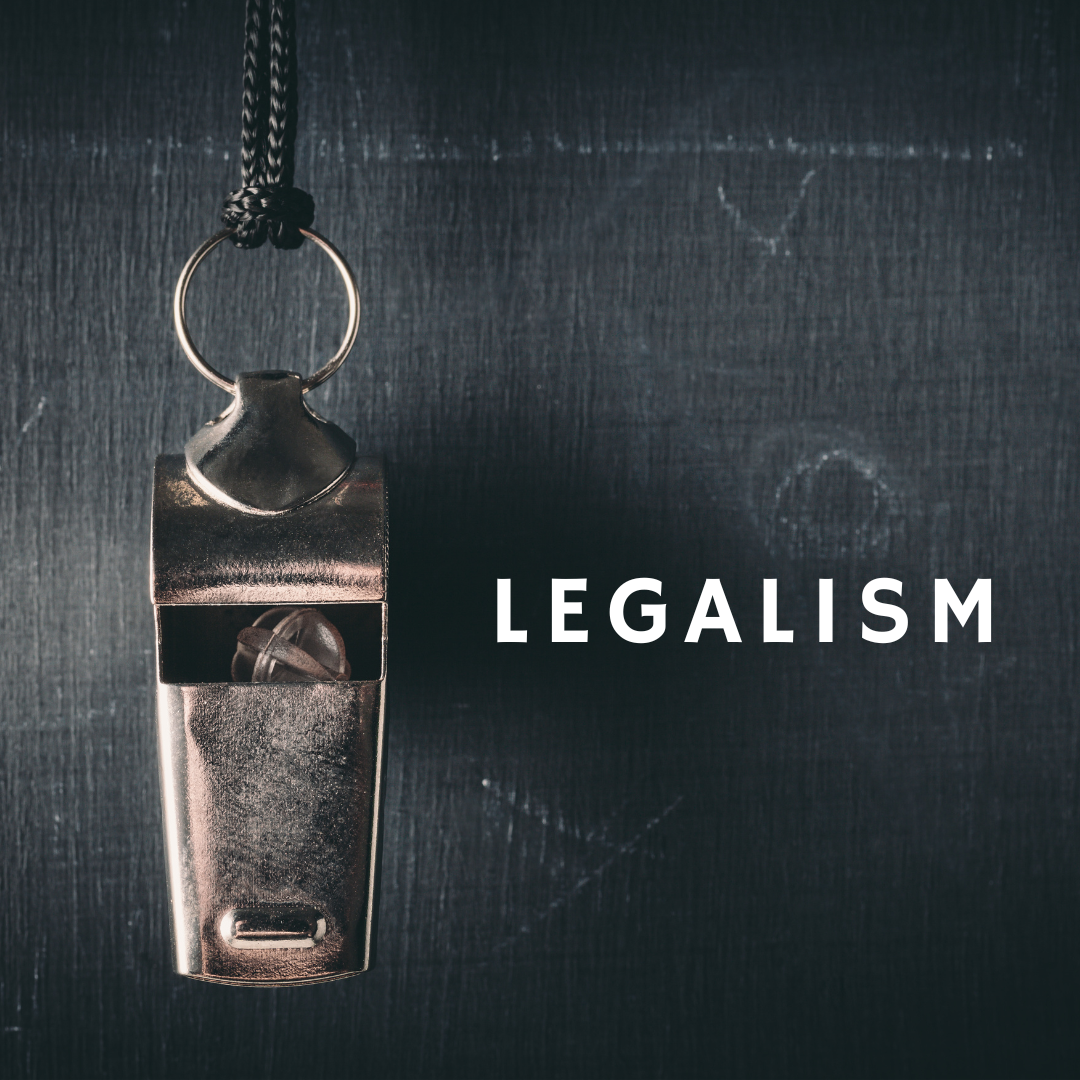Defining- and Avoiding- Legalism

“Legalism” is a term thrown out a lot in Evangelical circles – and an especially dreaded one because it implies you are a stick-in-the-mud, out-of-touch, intolerant, and way too hard on people. However, legalism involves a much bigger, deeper, and more devastating error.
Strictly defined, legalism is about adding requirements for salvation to the Gospel beyond faith: Jesus plus works. The entire book of Galatians was written to thwart this poisonous theology, which added back elements of the law such as circumcision, feast days, and Old Testament dietary rules.
However, I want to address the strand of legalism that takes practices or principles one feels deeply about and insists on binding them on the consciences of other believers. Unfortunately, it’s a common practice in among the Independent Fundamentalist Baptist movement with which I was associated much of my life.
To illustrate: say someone has definite conviction about going to the movie theater, surmising that Hollywood is so repugnant that no Christian should publicly identify with such an enterprise. You will get no arguments from me that the left coast serves us the equivalent of a moral trash heap, that Christians are better off being influenced by more wholesome fare, and that some forms of entertainment are not in any way acceptable for followers of Jesus.
However, to make others feel out of fellowship in their walk with God simply because they walk into a theater and see a film they would otherwise view in their living room is a form of legalism. This does not mean that we throw the baby of holiness in the Christian life out with the proverbial legalistic bath water. Christians are to be holy! But we shouldn’t seek to unduly bind the consciences of others.
A New Testament example of a controversial, yet morally neutral, practice that Paul addressed with the congregations of Rome and Corinth was Christians eating meat that that came at a reduced price because it had been offered to idols. Because of the past sensitivities and tender consciences of those who had been ensnared by idols, some thought the practice was off limits. What was Paul’s response? He stated very clearly that it was not sinful to eat such meat. However, believers were not flaunt to flaunt their liberty toward others who struggled. In this case, ironically, it was an insensitive insistence on freedom in the gospel that amounted to “legalism.”
Let’s be clear here. The Bible does not address everything. As believers following the principle of Sola Scriptura (meaning Scripture alone defines our faith and practice) we are called upon to develop discernment while maintaining unity with our fellow believers. This discernment comes through prayer, study, honest conversation, and grace towards other Christians.
So can a Christian have a glass of wine without getting drunk, smoke a cigar, get the Covid shot, use contraception, visit movie theaters, or choose a controversial Bible translation? We must respect the consciences of others while not overly imposing our personal preferences towards others.
I end on this note: I believe with all my heart when churches impose the personal preferences of their leaders or denominations on their members, they are setting them up for failure. As a matter of fact, they are setting them up for potential apostasy or a spirit of self-righteous legalism because they feel so superior in their faith than everyone else. Unfortunately, many who have walked away from “fundamentalism” – and hence away from Christ – have done so because of their disillusionment when they learn that that their leaders’ intertwining “approved” Bible translations or women wearing skirts or whatever else with the gospel was a matter of personal preferences and not Biblical standards.
Alternatively, they may entrench themselves even more deeply into the radical legalism they have been taught, and even question whether or not a person is truly a Christian if he or she is from another denomination or doesn’t follow every practice they do.
Friend, in either direction this is subverting the flock of Christ from the simplicity of the gospel toward one’s own personal preferences and that is not something any shepherd wants to be held accountable for on the final day. Next time I will seek to address some dangers when leaving such a context as described above.
Soli Deo Gloria
More in Blog
April 25, 2024
Part 3: Should Children Have Their Own Service? Developing a Family Culture in Corporate WorshipApril 24, 2024
Part 2: Should Children Have Their Own Worship Service? History and Unintended ConsequencesApril 24, 2024
Part 1: Should Children Have Their Own Worship Service: What Does the Bible Say?